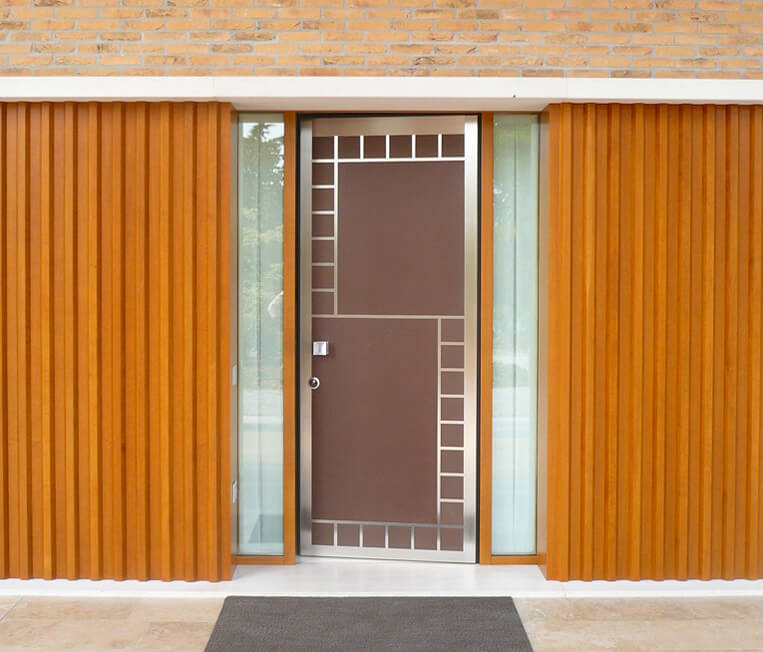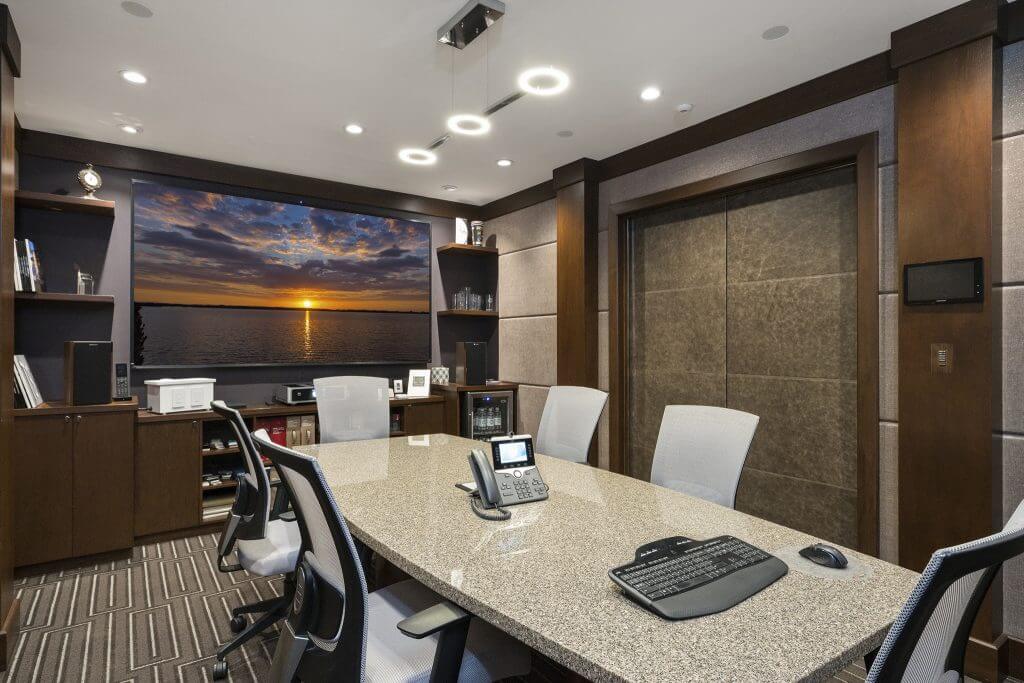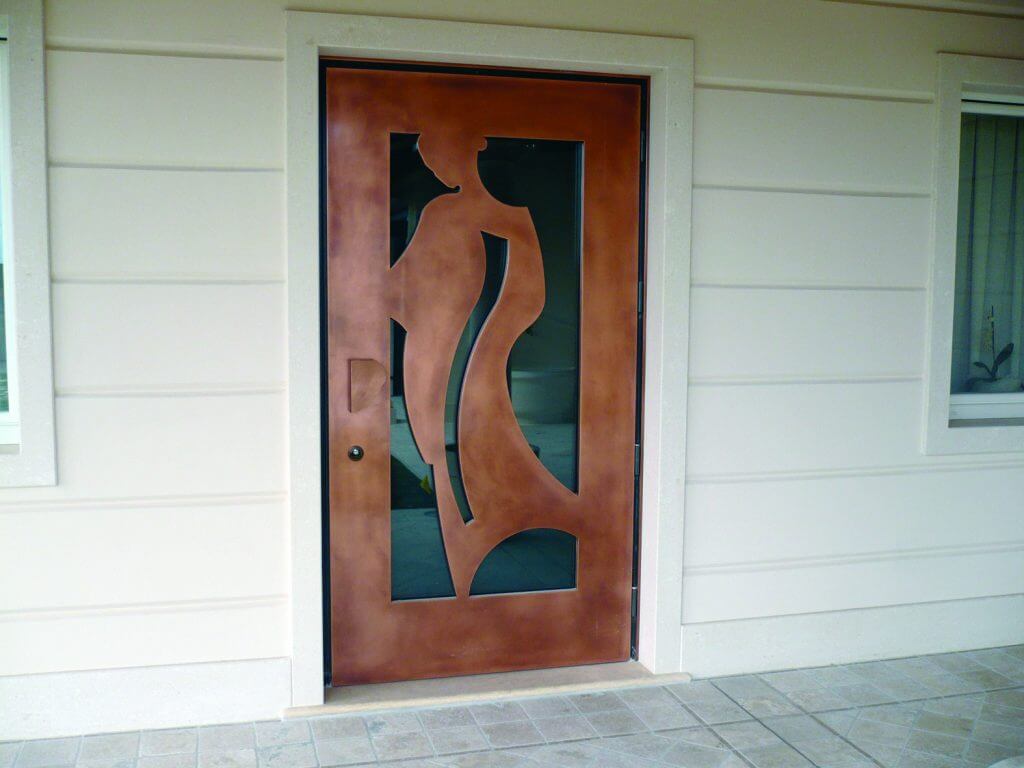You’ve probably heard us say it dozens of times: we’re not a just door and window company — we’re a security company that provides security services by making really incredible doors and windows.
Sure, we can make you a gorgeous, completely custom bedroom, fire, or front entry door, but no matter what we make for you or what coverings you choose, each and every one of them will be a high security door. We believe that your home should be a place where you can fully relax, and in order to do that, you have to believe that you are completely safe.
That being said, we also feel it’s critical for your family to plan in the event of an emergency. While we’re unshakably confident in the quality of our doors and windows, sometimes there are disasters beyond our control (or yours). And in those cases, everyone needs to know where to go, what to do, and how to survive.
For all of those circumstances and more, we’re very proud to partner with LionHeart International Services Group. We’ll get into the details of how it all works and how we integrate his team into our process with clients. But first, let’s talk about Tim.
Meet Tim Miller, Retired Military, Former Secret Service and Homeland Security Agent
Tim Miller is the President and Founder of LionHeart. Once you understand his background, it will be easy to see why he felt compelled to form a company that provides comprehensive security services.Miller started off his professional life in the military. He spent 25 years in the Marines — five years on active duty and then the last 20 years in the Reserves assigned to counterintelligence. When he was deployed on his required Reserve assignments, he worked in Force Protection — a division responsible for keeping Marines safe no matter where they are, or what situation they’re in. Quite literally, Miller was the disaster planner. He and his Force Protection team would look at a location and determine the most likely ways in which enemies could attack the troops. They’d study intelligence reports to see what information could give them insight as to possible plans of attack, identify vulnerable spots, and then do everything they could to keep their Marines safe. While he was serving in the Reserves, he was also a police officer. Eventually, he had the honor of serving as a Secret Service Agent for just over five years, coordinating all aspects of security for the President, Vice President, and multiple heads of state during his tenure working in the White House.Suffice to say, Tim Miller is uniquely qualified to assess your own personal security and safety needs. If he could keep the President safe, he can keep you safe, too.
Personal Protection Assessment by Security Architects
Miller and his colleagues began by putting together “baseline training,” which involves the same types of procedures he used in the Marines and the Secret Service: a physical security assessment, an executive protection plan, and a threat analysis.How many exits are there, and where are they?How big is the space?What’s the layout?How many people are expected to be there?How are we going to get people to safety?How can we buy time?How likely is it that someone will target this person/place/institution?These are all important questions Miller and his team address in every new location with every client, whether it’s a private citizen, a business, or a place of worship. This is where he starts with our clients as well.
Interfacing with FBS Clients
Depending on what our clients’ security needs and concerns are, we’ll bring Tim and his team into the discussion so he can make his assessment as well. He’ll ask all of these questions, do a site evaluation, and help you plan for every type of emergency. The LionHeart team will also interface with existing security personnel, who are likely to know the ins and outs of the clients’ lives and be able to point out flaws in the system, or concerns that will be particularly important to the client. They’re not looking to usurp any existing precautions or plans, but rather fully integrate technology, doors, windows, and emergency planning. At its core, what LionHeart does for its clients is prepare them, and in that regard, Miller stresses the difference between law enforcement and security. “Law enforcement responds to something that’s happening — they try to mitigate it. They’re reactive. But security is about preventing something from happening. It’s proactive.” 
Training for the Worst-Case Scenario
When Miller and his team meet with a new client, their first order of business is to do a comprehensive security and personal protection assessment. They want to know what the client is already doing to protect themselves and their families, and what their major security concerns are. Have they already been personally threatened or survived violent incidents?Are they consistently in the public eye?If there is an intruder in the house, where should they go?What’s the most likely way someone will break into their house?Do they have a safe room?However, Miller’s team isn’t only concerned about physical security and protection. When they say a “comprehensive” assessment, they mean it. As Miller puts it: “You wouldn’t go to battle with just one part of the plan.” They’re also looking for possible accidents and external forces entirely out of their control — families need to plan for all of it. What kind of extreme weather conditions might they encounter at home? (i.e. hurricanes, tornados)What happens in the event of a fire?Every situation, every family, every home is different, and therefore, the recommendations LionHeart gives to each client are different.Not every family needs every possible security feature. Some of them need a safe room to go to in the event of an emergency. Others need to know what they can do if a hurricane or tornado is in their area. And really, all of them need to know what to do in the event of a fire.
Corporate Security Protection
Something all of LionHeart’s corporate clients go through these days is active shooter training. Miller says it’s true that in today’s world, businesses do need to do that type of training. Employees need a coordinated plan in order to manage the chaos and save as many lives as possible.Miller brings up access control limitations — not every employee needs to be able to go everywhere, and you certainly don’t want just anyone to be able to walk in off the street and into your office. Businesses also need security alarms and cameras and panic buttons. One of the questions he asks when doing a corporate assessment is whether or not they have a room that can be made into a safe room (or perhaps they already have a safe room).But none of that technology matters if the employees don’t know what to do in the event of an emergency. “Emergency planning is huge — not just for active violence, which is really a very small part of what we do — but more importantly, for the common things like fire, weather, even domestic issues, and all kinds of other things,” Miller says. 
Digital Data Protection
It’s also crucial that corporations are learning how to properly protect their data. It seems like there’s a new data breach every month or so (at least). Hackers will always try to get past firewalls and every possible security measure you put in place, but that doesn’t mean you shouldn’t have the best data security possible — not just for customer data, but for trade secrets and valuable company intel. For example, if Apple is going to launch a new iPhone in September, they’ll want to keep as much of that design under wraps as humanly possible. There are always rumors, but Apple will want that keynote address to be impactful. As such, they’ll protect those sketches, mockups, and plans with anything and everything they can. This is something LionHeart recommends to all their corporate clients. You really can’t be too safe with your data. Miller says that every organization in the country needs all of these elements incorporated into a comprehensive security plan.
Comprehensive Security Service
To help provide the best personal and corporate security services possible, he’s put together a team of former FBI and Secret Service Agents, military personnel, and state and local law enforcement officers. You can read about a few of them on their website, such as former FBI agent Mark Lundgren, war correspondent Chuck Holton, and former Secret Service Agent Miles Brey. Additionally, there are quite a few more who come in as needed — all of whom are uniquely qualified to teach people how to own their own security.“I’ve gone from protecting Presidents to protecting people — and that’s what we’re about,” Miller says. “We don’t operate in fear. We operate in wisdom and preparation. We’re not going to go into a training to scare everybody to death — we’re going to go in and equip them so they can protect themselves and others in a crisis.”



